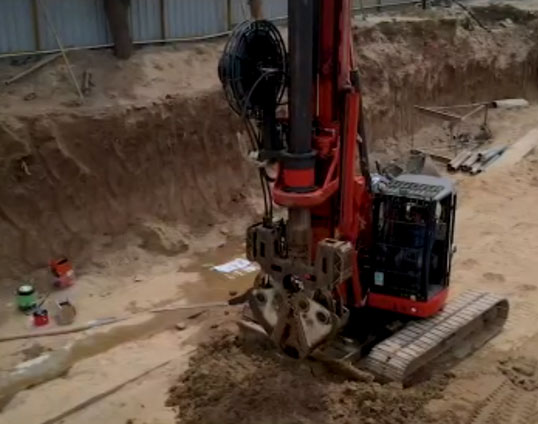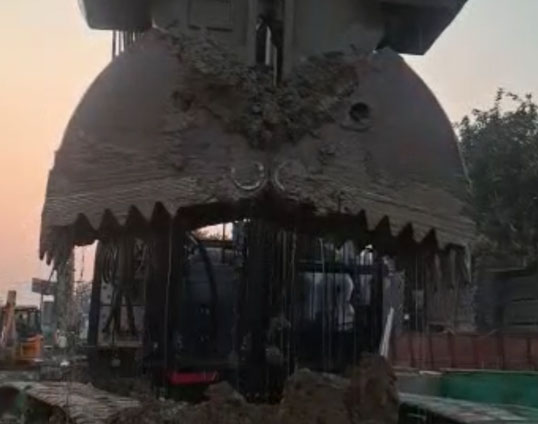
Understanding soil is a crucial part of building a diaphragm wall for deep basements. Civil engineers from some of the best construction companies in India will agree that for a project to proceed, it is vital to ensure that the soil on the construction site can take the load, withstand the pressure with time and not degrade the construction material used in the structure.

As one of the top civil construction companies in India, we have set standards in constructing diaphragm walls in almost all types of soil across the country and worldwide. Read on to know what our civil engineers look for in the ground they work with and the actions they take to ensure a strong foundation is laid for the diaphragm walls to last for the longest time.
Types of soil
A large country like India has different types of soil in different regions as per its climatic conditions and its exposure to various environmental elements like heat, snow, salinity, etc. Being among the leading construction companies in India and having worked all over the country, our engineers have come to define the types of soil below and how they affect deep basement construction:
– Sandy: In the north-western belt of the country, in states like Gujarat, Rajasthan and Haryana, the top soil strata have more sand in them and are drier because of the excessive exposure to heat. While excavating through them is easier, what’s challenging is ensuring the soil doesn’t collapse.
– Marshy: The coastal belt of India that stretches down south from Maharashtra to Andhra Pradesh and West Bengal, has a much marshier soil thanks to the high water table in the ground, proximity to the sea and the humid climate the regions have. The construction of the diaphragm wall in such soil conditions also involves shoring activities.

– Sand with Silt: The central parts of the country, like Madhya Pradesh, Uttar Pradesh, Delhi and some parts of Gujarat have sandy soil, mixed with silt deposits. These occur from the various rivers flowing through these regions. Ahmedabad is one such city.
– Rocky/Gravel: The central and far northern regions of the country with mountain peaks have rocky strata with lots of gravel in their soil. Working in such conditions is a challenge, as engineers have to involve trench cutters to penetrate the layers to excavate further.
Challenges faced by the best construction companies in India
It is never a walk in the park when it comes to constructing a diaphragm wall for deep basements in a country like India, where the soil type changes with every state, cities are densely populated and the soil quality resultantly going down.

No comments:
Post a Comment